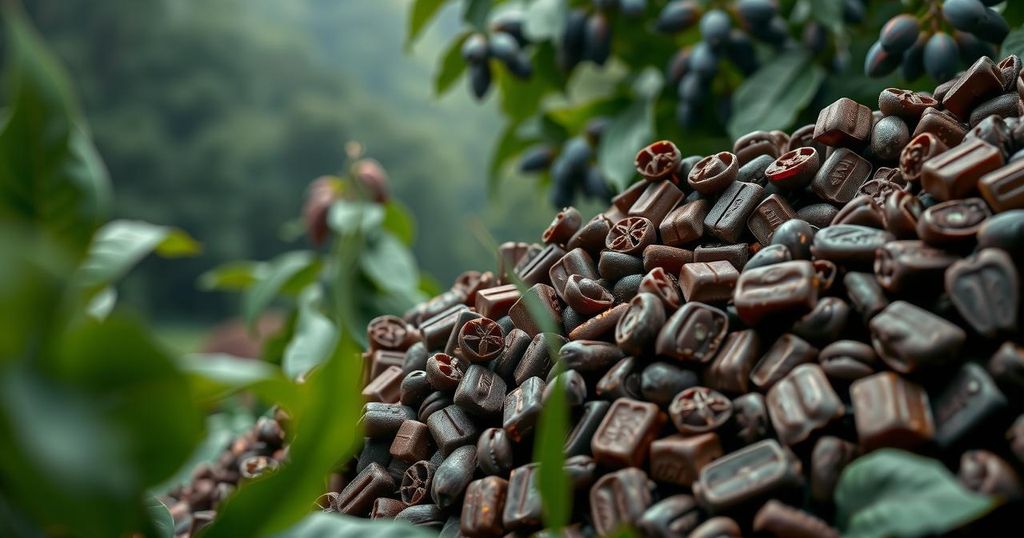Rising Chocolate Prices Linked to Climate Change Impact on Cacao Production

Climate change has led to increased prices for chocolate products due to rising cacao production costs. Major companies Orion and Haitai Confectionery & Foods have raised product prices significantly. The price of cocoa reached record highs, prompting concerns about future agricultural price increases as climate impacts worsen.
The price of chocolate products, including cookies, chips, and various snacks, has seen a notable rise attributed to the adverse effects climate change has on cacao production costs. Recently, the confectionery company Orion raised prices on 14 of its products by an average of 10.6%, with certain items like Choco Songyi and Bichobi experiencing increases up to 20%. Similarly, Haitai Confectionery & Foods raised prices on 10 products, including Homerun Ball and Pocky, by 8.6%. This surge in prices is a response to the declining production of cacao— a key ingredient in chocolate— driven by extreme weather and diminishing cultivation areas.
Industry reports highlight that the most severe impacts are felt in West Africa, a region that supplies a significant portion of the global cacao market. The Ministry of Agriculture, Food and Rural Affairs has reported that the price of cocoa, a refined form of cacao, reached an alarming $9,236 per ton as of last Tuesday, which marks a 127% increase from the previous year and an extraordinary 246% rise compared to historical averages. Furthermore, experts caution that as the effects of climate change escalate, prices for other agricultural staples and processed goods may also surge, as evidenced by recent increases in sugar, flour, and palm oil prices.
The issue concerning rising chocolate prices is intricately linked to climate change and its impact on agriculture. Cacao, a crucial ingredient in chocolate products, is increasingly vulnerable to rising temperatures and extreme weather conditions. The majority of global cacao production occurs in vulnerable areas, particularly West Africa, where environmental challenges have consistently threatened crop yields. This context is essential in understanding the economic implications of chocolate sourcing and pricing on a broader scale, especially as consumer behavior adapts to these changes in the food production sector.
In conclusion, the rising prices of chocolate products are a direct consequence of climate change affecting cacao production. With significant increases reported by leading confectionery companies, the situation underscores a larger trend of escalating costs across various agricultural goods. The rising price of cocoa not only reflects current supply chain pressures but also signals potential future challenges for consumers and producers worldwide as climate-related impacts continue to unfold.
Original Source: www.koreatimes.co.kr





